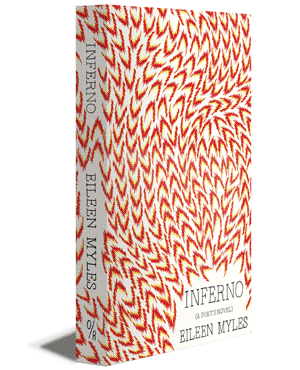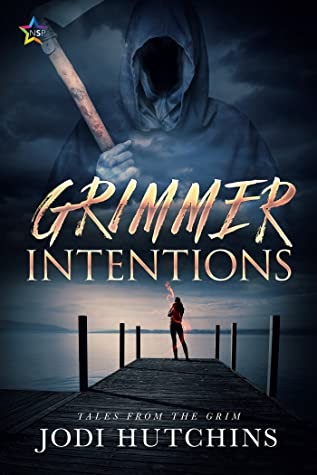Poet and former artistic director of St. Mark’s Poetry Project Eileen Myles—who is also a lesbian, although “lesbian poet” is an identity with which her protagonist grapples—presents Inferno as “a poet’s novel,” but what keeps it from nonfiction is unclear. It reads as a rambling, associative, nonlinear memoir of her career, as she name-drops from 1970s Greenwich Village to Germany (via reading tour with Semiotext[e]). On her website, Myles explains thatInferno “chronicles the adventures of a female writer in hell very much like Eileen Myles. Inferno is actually a künstlerroman,” a type of bildungsroman that portrays an artist’s development.
The second part of the novel is presented as a grant proposal, complete with an abstract. Yet the style and form do not change (except for the occasional self-conscious note on whether what she’s writing belongs in a grant proposal). Throughout the book, Myles embeds her poems. Although I no doubt missed much in the way of literary hearkening to Dante’s Divine Comedy and references to decades of the New York poetry scene, Myles’s writing is generally so big and beautiful that I was rewarded for powering through the only difficult part (surprisingly little amid all this timeless, sometimes placeless personal narrative)—i.e., in-depth descriptions of her plays.
Myles will teach you about life and living in such a roundabout way that you can’t help but accept her wisdom. She describes watching her dog take a shit, how her love makes her attuned to the faintest changes as her dog prepares. It’s the kind of book in which you highlight pages and scribble in the margins, only to return to the fragments and wonder what you were thinking.
The narrator relates how she became a lesbian (her phrasing) and her loves and lovers. She writes, “There’s a moment in a woman’s life when she discovers she can have sex with as many people as she wants. Suddenly everyone is a potential partner. That’s when men get in the act which is why lesbianism isn’t really a thing it’s just this unbridled lust. It’s like god. If writers are the only people, I mean the last ones who have lives lesbians are the only people who have sex.” Her descriptions of sex are artful and hot and rear up unexpectedly as the book winds to a close.
What I was left with is akin to what struck Myles’s as she read Deleuze’s Masochism: “He said the masochist habitually lays out a story, a fetishized chain of objects or events, in which the seeker must thoroughly immerse herself in order to reach the unexposed but desired conclusion. Which was…” On reading poetry, she writes, “Succumb, don’t resist. Because we do get to choose what we are succumbing to. We create worlds out of what we put into our heads. I don’t know about you. It’s why I read.”
Agreed. Succumb.

